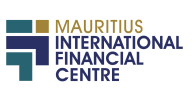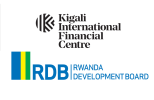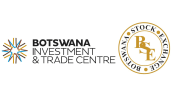Overview of Nigeria Stock Market Today
Understanding the Nigeria stock market is crucial for investors and financial analysts. It offers a glimpse into the economic health of Africa’s largest economy.
In this article, we delve into the Nigeria stock market today. We’ll explore its current performance, key indices, and top-performing stocks.
We’ll also examine the economic factors influencing the market. This includes global news impact, government policies, and foreign investor activity.
Finally, we’ll discuss investment opportunities and risks. We aim to provide a comprehensive overview of the Nigeria stock market, offering valuable insights for informed decision-making.
The Nigerian Stock Exchange: An Economic Cornerstone
The Nigerian Stock Exchange (NSE) plays a pivotal role in the country’s economy. It serves as a platform for buying and selling securities.

Established in 1960, the NSE has grown significantly over the years. It now lists over 160 companies across various sectors.
The NSE’s market capitalization is a key indicator of Nigeria’s economic health. It reflects the total value of all listed securities.
In addition to equities, the NSE also facilitates trading in exchange-traded funds and bonds. This diversity contributes to the robustness of Nigeria’s financial market.
Current Performance and Market Trends
The Nigeria stock market has shown resilience in recent times. Despite global economic challenges, it has managed to maintain a steady performance.
Key market indices, such as the NSE All-Share Index, provide insight into market trends. They reflect the average performance of all listed companies.
- NSE All-Share Index: This index has shown a mixed performance recently. It has experienced both gains and losses, reflecting market volatility.
Sectoral performance also plays a crucial role in the overall market trend. Some sectors have outperformed others, indicating potential investment opportunities.
In conclusion, understanding these trends is vital for investors. It helps them make informed decisions and navigate the market effectively.
Key Indices and Their Movements
The Nigeria stock market is guided by several key indices. These indices provide a snapshot of the market’s overall health.
- NSE All-Share Index: This index represents the average of all listed stocks. It is a key indicator of market performance.
Recently, the NSE All-Share Index has experienced fluctuations. This is due to various factors, including economic news and investor sentiment.
Understanding these indices and their movements is crucial. It provides investors with valuable insights into the market’s direction.
Top-Performing Stocks and Sectors
The Nigeria stock market today is home to a variety of sectors. Each sector contributes to the overall market performance.
- Top sectors: These include banking, consumer goods, and oil & gas. These sectors have consistently shown strong performance.
Within these sectors, certain stocks have outperformed others. For instance, stocks from leading banks have shown impressive returns.
However, the performance of stocks can vary. It is influenced by factors such as economic news and company announcements.
Investors should keep an eye on these top-performing stocks and sectors. They offer potential opportunities for investment.
Economic Factors Influencing the Market
The Nigeria stock market is influenced by various economic factors. One key factor is the price of oil.
- Oil prices: Nigeria is a major oil exporter. Thus, fluctuations in oil prices can significantly impact the market.
Another factor is the foreign exchange rate. A stable exchange rate can boost investor confidence.
- Exchange rates: The value of the Naira against other currencies affects the market. It influences foreign investment and company profits.
Understanding these economic factors is crucial. It helps investors make informed decisions in the Nigeria stock market today.
Global News Impact and Foreign Investor Activity
Global economic news can sway the Nigeria stock market. Events like trade wars or global recessions can affect investor sentiment.
- Global news: International events can impact foreign investment. They can also influence the performance of multinational companies in Nigeria.
Foreign investor activity is another key aspect. It can significantly affect the Nigeria stock market price today.
- Foreign investors: Their participation can drive market trends. It can also impact the liquidity and volatility of the market.
Keeping an eye on global news and foreign investor activity is vital. It can provide valuable insights into the Nigeria stock market.
Government Policies and Regulatory Framework
Government policies can greatly influence the Nigeria stock market. Policies related to trade, investment, and fiscal matters can affect market trends.
- Government policies: These can either stimulate or hinder market growth. They can also impact investor sentiment.
The regulatory framework is another crucial factor. It governs the operations of the Nigeria stock market.
- Regulatory framework: It ensures market transparency and protects investor interests. It also plays a role in maintaining market stability.
Understanding the government policies and regulatory framework is essential. It can help investors make informed decisions in the Nigeria stock market.
Investment Opportunities and Market Risks
The Nigeria stock market presents numerous investment opportunities. These opportunities span across various sectors and industries.
- Investment opportunities: They range from blue-chip companies to promising startups. Diversification is key to maximizing returns.
However, like any other market, it also comes with risks. Market volatility and economic instability are among the main risks.
- Market risks: These can be influenced by both domestic and global factors. Investors need to be aware of these risks.
Balancing the potential rewards against the inherent risks is crucial. It forms the basis of any successful investment strategy in the Nigeria stock market.
Expert Opinions and Market Forecasts
Expert opinions play a significant role in shaping investor decisions. They provide insights into market trends and potential investment opportunities.
- Expert opinions: These are often based on in-depth analysis of market data and economic indicators. They can offer valuable guidance to investors.
Market forecasts, on the other hand, provide a glimpse into the future. They predict how the market might perform based on current trends and data.
- Market forecasts: While not always accurate, they can help investors plan their investment strategies. It’s important to consider multiple forecasts to get a balanced view.













































